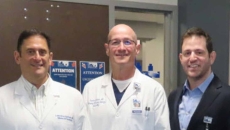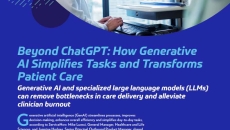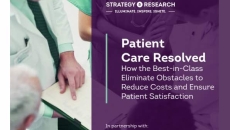AI
As artificial intelligence and other digital health technologies make their mark, provider organizations need to pursue "organizational ambidexterity." Here's what that means, along with six tips for achieving it.
The bill would allow AI to be classified as a "practitioner licensed by law" to administer FDA-approved drugs.
More providers are finding artificial intelligence can reduce clinician burnout and lower recruiting costs. Meanwhile, tech vendors on the frontier of agentic AI innovation are looking to healthcare as a first use case.
Success Stories & ROI
Albany ENT & Allergy Services projects its providers could achieve an 11-13% increase in efficiency with the ambient medical scribe system. And a decrease in reliance on scribes could reduce overhead costs and enable strategic resource reallocation.
SPONSORED
Here’s what Trend Micro research reveals about cybersecurity and AI.
SPONSORED
According to research by the American Hospital Association, growing after-hours workloads and administrative tasks are leading contributors to clinician burnout.
SPONSORED
Healthcare organizations (HCOs) continue to face challenges in hiring and staffing retention, compounded by patients’ shifting expectations. Best-in-Class HCOs with “next-gen” patient care programs that deliver excellent clinical results and patient experiences through deploying artificial intelligence (AI) and automation are seeing significant performance success.
Federal labor data showed joblessness in the technology sector up to 5.7% in January, compared to 3.9% this past December, surpassing the overall national unemployment rate of 4%.
Remote Patient Monitoring
Remote patient monitoring has begun to collect vital signs and other patient data more strategically and efficiently: Instead of waiting until a patient experiences distress, AI can help clinicians intervene earlier.
At the HIMSS25 Smart Health Transformation Forum, health system execs will explore value propositions of the latest digital tools. Esther Kim of Mass General Brigham, Kali Arduini Idhe of Northwestern Medicine and Marcee Chmait of Providence discuss.











